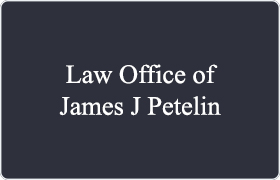Granite Bay Misdemeanor Lawyer, California
Sponsored Law Firm
-
 x
x

Click For More Info:
-
Law Office of James J Petelin
1550 Humboldt Road, Suite 4 Chico, CA 95928» view mapDivorce & Family Law Effective, Client-Focused Representation
James Petelin is a practicing attorney in the state of California who focuses on Family Law.
800-943-9701
Richard Thomas Dudek
✓ VERIFIED *Status is reviewed annually. For latest information visit hereCriminal, Felony, Misdemeanor, White Collar Crime, DUI-DWI
Certified Criminal Law Specialist
Richard Dudek knows the Sacramento courts, procedures and prosecutors. Our highly skilled defense team includes licensed private investigators who use... (more)
Thomas A. Leupp
Misdemeanor, Felony, DUI-DWI, Criminal, Children's Rights
Status: In Good Standing *Status is reviewed annually. For latest information visit here Licensed: 47 Years
Joshua Kaizuka
Misdemeanor, Felony, DUI-DWI, Criminal
Status: In Good Standing *Status is reviewed annually. For latest information visit here Licensed: 25 Years
Joseph Patrick Hougnon
DUI-DWI, Personal Injury, Felony, Misdemeanor
Status: In Good Standing *Status is reviewed annually. For latest information visit here Licensed: 29 Years
FREE CONSULTATION
CONTACTJames Murray Warden
Military & Veterans Appeals, Misdemeanor, Felony, Criminal
Status: In Good Standing *Status is reviewed annually. For latest information visit here Licensed: 37 Years
FREE CONSULTATION
CONTACT James Petelin Chico, CA
James Petelin Chico, CA AboutLaw Office of James J Petelin
AboutLaw Office of James J Petelin Practice AreasExpertise
Practice AreasExpertise
